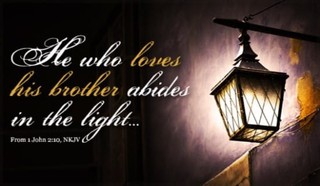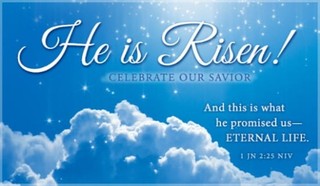- Recent Translations
- All Translations
1 John 2:9
Share
Settings
1 John 2:9 Meaning and Commentary
He that saith he is in the light
Is in Christ the light, or has the true knowledge of the light of the Gospel, or is illuminated by the Spirit of God; for persons may profess to be enlightened ones, and not be so: wherefore the apostle does not say, he that is in the light, but he that says he is,
and hateth his brother;
who is so either by creation, as all men are brethren, having one Father, that has made them, and brought them up; or by regeneration, being born of God the Father, and in the same family and household of faith; and so regards such who are in a spiritual relation, whom to hate internally, or not to love, is inconsistent with being in the light, or having faith, which is always naturally and necessarily accompanied with the heat of love; for as light and heat, so faith and love go together: wherefore, let a man's profession of light be what it will, if love to his brother is wanting, he
is in darkness even until now;
he is in a state of nature and unregeneracy, which is a state of darkness and ignorance; he is under the power of darkness, and in the kingdom of Satan; who is the ruler of the darkness of this world; he ever was so from his birth; he never was called nor delivered out of it, but is still in it to this moment, and so remains. This seems to be very much levelled against the Jews, who make hatred of the brother in some cases lawful: for they say F4,
``if one man observes sin in another, and reproves him for it, and he does not receive his reproof, (wtwanvl rtwm) , "it is lawful to hate him";''(See Gill on Matthew 5:43).
F4 Moses Kotsensis Mitzvot Tora, pr. neg. 5.
1 John 2:9 In-Context
Footnotes 1
- [a] 'The darkness.' Though a little harsh in these cases in English, 'the' ought to be retained, because it is not simply a state -- a man being in darkness; but a specific darkness, the ignorance and non-revelation of God is spoken of: only it is abstract, and so absolute. 'The darkness' is the natural condition of sinful man without God, who is light; the creature without God. Hence in John 1.5 'the light appears in darkness, and the darkness apprehended it not.' 'Is passing' (ver. 8) is abstract. 'The true light shines:' that is absolute; it shines, whether seen or not. But though some had received the light, he could not say the darkness was all gone, for it was not, but only with some who 'were once darkness, but now light in the Lord.' Thus it was not as in the gospel, when Christ was upon earth; for then the darkness apprehended not the light shining in darkness. It was putting the light out. As long as he was in the world, he was the light of the world. Now it was not so: there was a passing away of the darkness.


